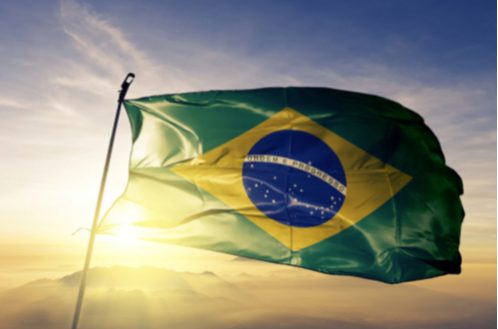
The Brazilian antitrust watchdog, CADE, has recommended blocking the proposed sale of Dairy Partners Americas (DPA) from its controllers Nestle (NESN. S) and Fonterra to Lactalis. Technical staff at CADE have identified horizontal competition issues in the Brazilian dairy products market, specifically citing the fermented milk, petit-suisse and dairy dessert markets.
This would mean that the few competitors remaining in those markets nation-wide, would have much “low capacity to challenge the market power resulting from the transaction,” accordingly to a statement released by CADE.
DPA, established in 2003, the owner of the Chambinho, Molico and Chandelle brands, is one of the largest yogurt, dairy dessert and cream cheese manufacturers in Brazil with two plants located in Araras, Sao Paulo and Garanhuns in Pernambuco state.
After its initial announcement of the proposed sale late last year, valued at 700 million reais ($131.5m), for Lactalis to take over the company from Nestle and New Zealand-based Fonterra, an evaluation was requested from the Department of Economic Studies (DEE). It showed that the ‘combined portfolio of brands of Lactalis and DPA’, plus the ‘gains in scale and scope in marketing’ from the deal would “increase prices in the three markets in question,” as putted by the technical staff.
Lactalis, which is the world’s largest dairy producer, owns two dozen brands in Brazil, while DPA holds eight. Both companies possess the majority of the Brazilian yogurt market share which accounts to around 60%.
Just Food has approached Lactalis, Nestle and Fonterra for a comment on the recommendation to block the deal. The statement revealed “the involved parties have until July 21st to present their opinion,” and proposed alternatives as well.
The proposed block of the sale has prompted many dairy producers in Brazil, mainly small and family owned, to voice their skepticism. Many are concerned of a potential abuse of the market by an even more dominant market player, given the fact Lactalis already has over 80% of the Brazilian dairy chilled products market.
The Brazilian government has recently restricted the use of foreign currency as well as imposed a ban on the country’s access to capital markets, which could have an effect on the sale, however, that still remains to be seen.
The final decision to accept, reject or modify the recommendation of CADE’s technical staff will be announced in due course, peaking the interest of many and inevitably leading to intense debates among the stakeholders.
Source: Reuters
Featured News
Big Tech Braces for Potential Changes Under a Second Trump Presidency
Nov 6, 2024 by
CPI
Trump’s Potential Shift in US Antitrust Policy Raises Questions for Big Tech and Mergers
Nov 6, 2024 by
CPI
EU Set to Fine Apple in First Major Enforcement of Digital Markets Act
Nov 5, 2024 by
CPI
Six Indicted in Federal Bid-Rigging Schemes Involving Government IT Contracts
Nov 5, 2024 by
CPI
Ireland Secures First €3 Billion Apple Tax Payment, Boosting Exchequer Funds
Nov 5, 2024 by
CPI
Antitrust Mix by CPI
Antitrust Chronicle® – Remedies Revisited
Oct 30, 2024 by
CPI
Fixing the Fix: Updating Policy on Merger Remedies
Oct 30, 2024 by
CPI
Methodology Matters: The 2017 FTC Remedies Study
Oct 30, 2024 by
CPI
U.S. v. AT&T: Five Lessons for Vertical Merger Enforcement
Oct 30, 2024 by
CPI
The Search for Antitrust Remedies in Tech Leads Beyond Antitrust
Oct 30, 2024 by
CPI